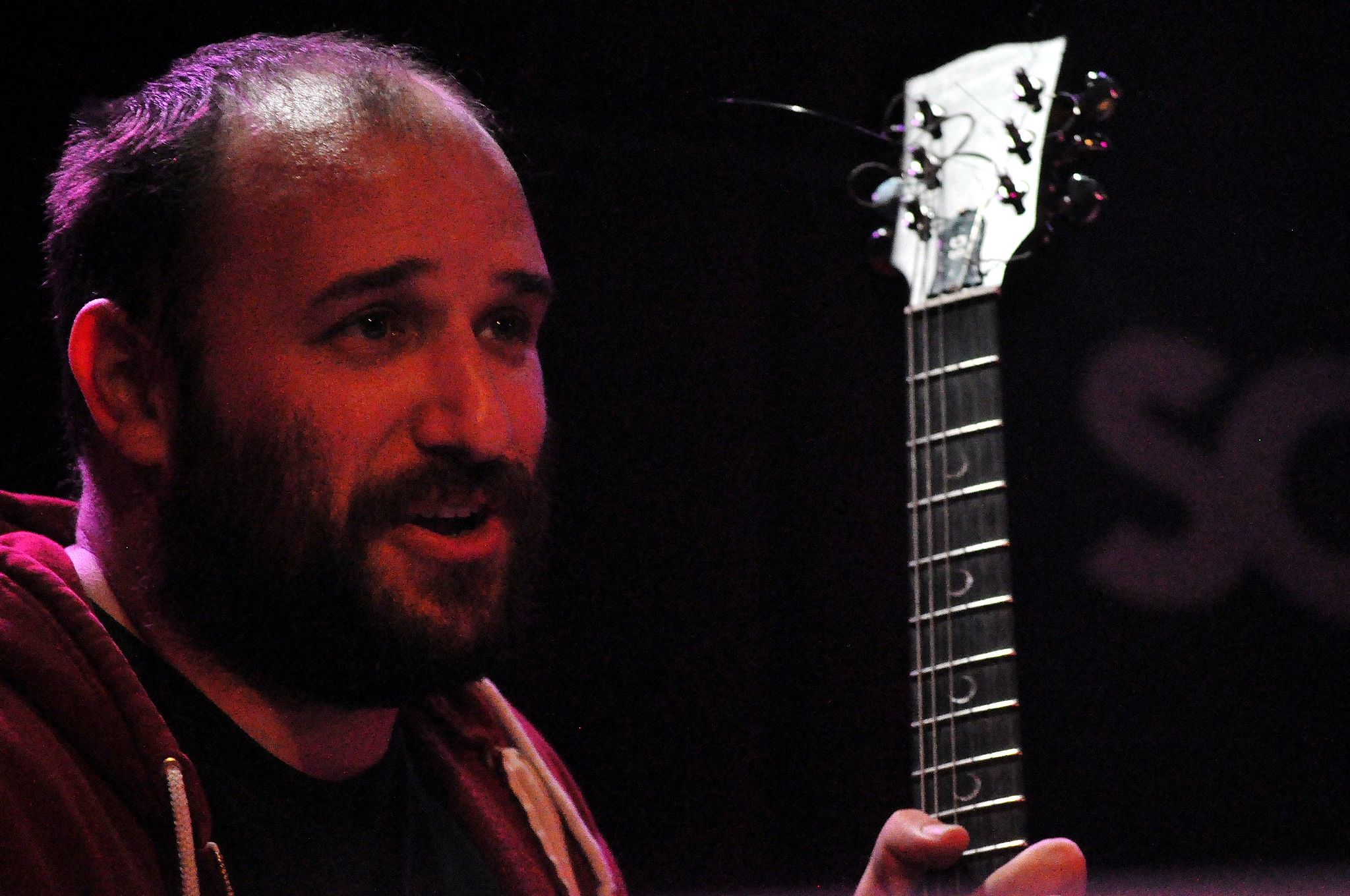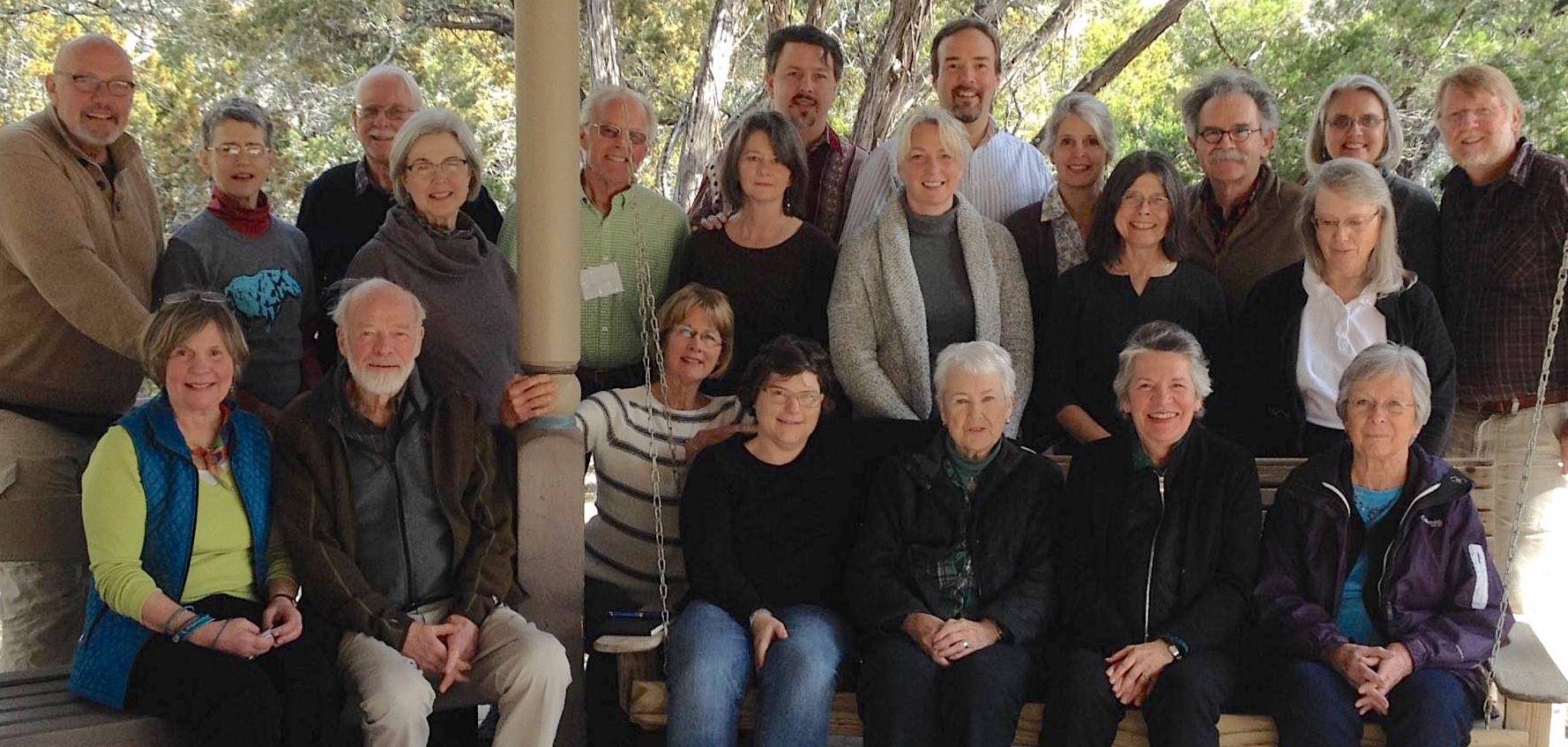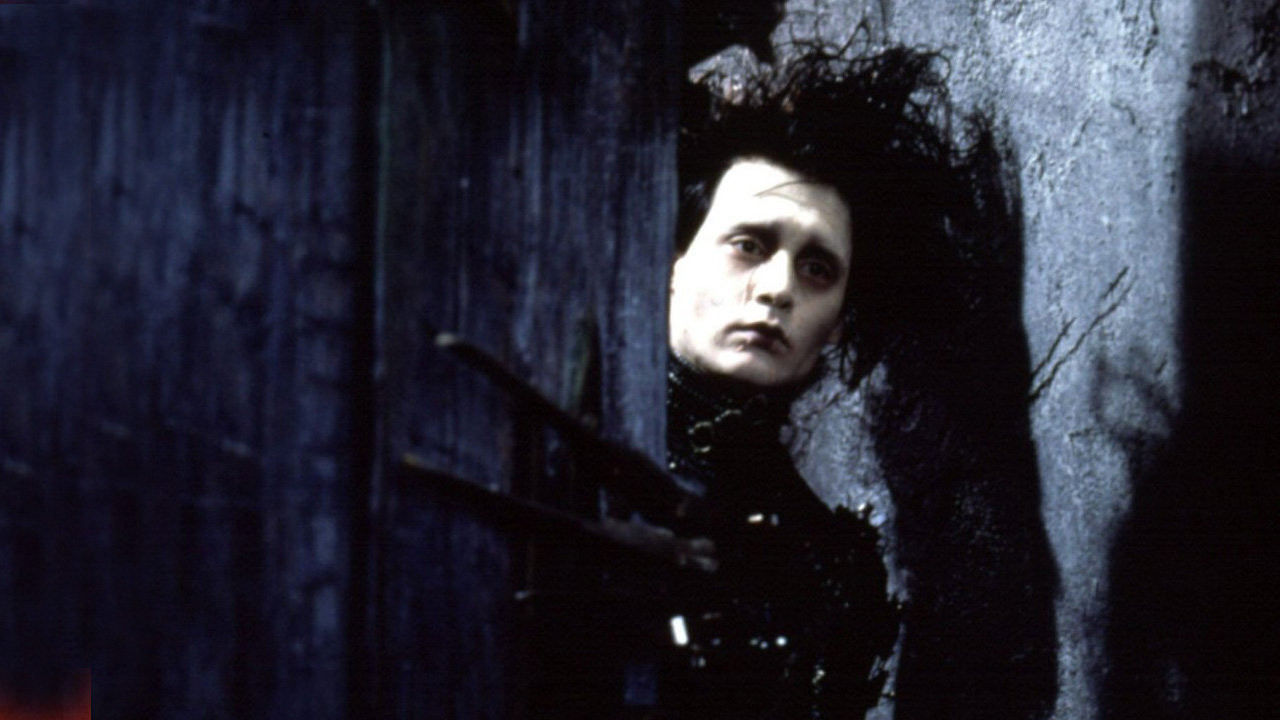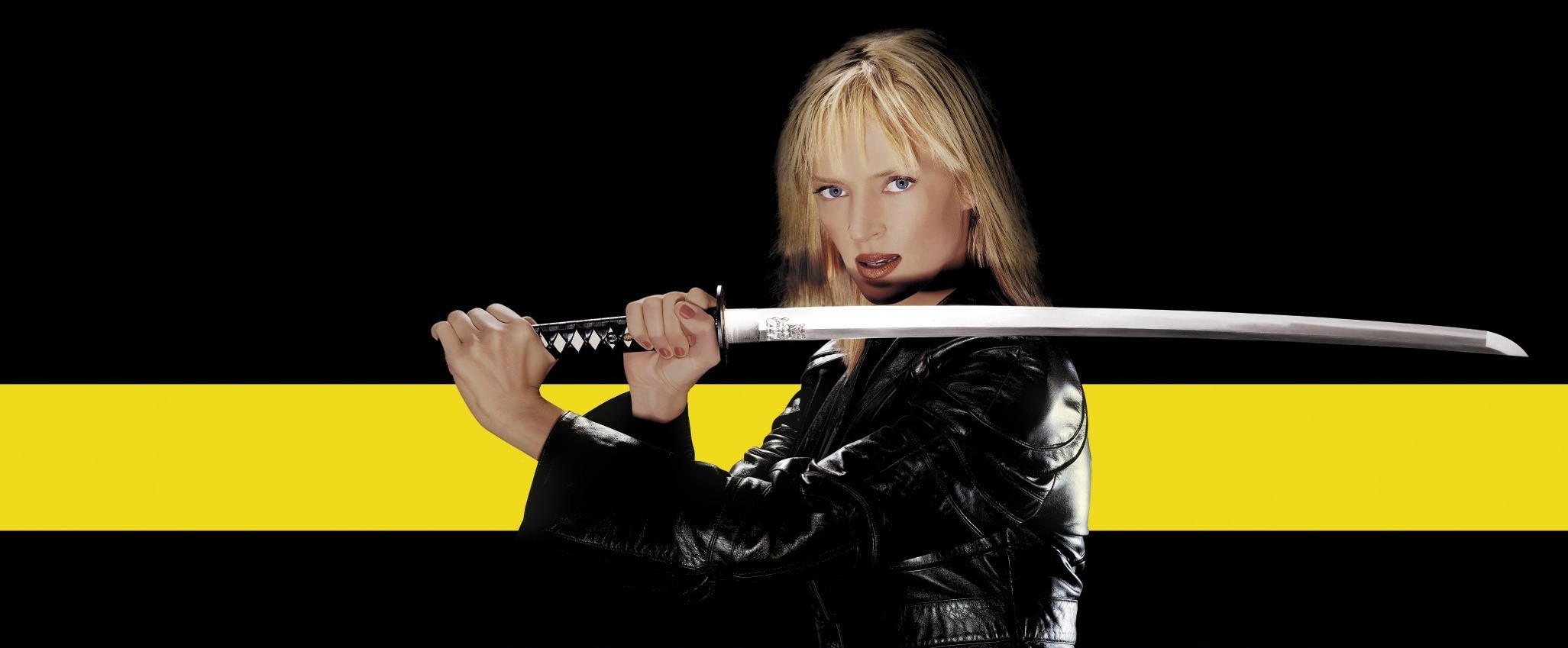Dusty Henry's Christmas Playlist
Last year, I embarked upon an epic investigation of other people's Christmas music playlists.
You can enjoy the treasure that I found right here: a remarkable line-up of personal and idiosyncratic soundtracks from Joe Henry, Ashley Cleveland, Sara Zarr, Alissa Wilkinson, Over the Rhine, Steve Taylor, and many more. It's not a zero-sum game: You can take as much of this music as you want without taking it away from anybody.
 This year, I'm adding more playlists to the party.
This year, I'm adding more playlists to the party.
Expanding it for 2015, I'm welcoming one of the Seattle Weekly's music critics to the Christmas playlist party.
Dusty Henry is a Seattle-based music journalist. He graduated from Seattle Pacific University in 2012 with a degree in journalism. His work has appeared not only in the Seattle Weekly, but also Consequence of Sound, CityArts Magazine, KEXP.org, Ballard News-Tribune, and more. He also operates PRE/AMP, a local music blog and zine.
Henry recently joined the University Communications staff at Seattle Pacific, giving us plenty of opportunity to share stories about our experiences writing reviews, going to shows, and discovering favorite artists and albums.
So here's Dusty Henry with a few suggestions for your 2015 holiday soundtrack.
•
Pedro The Lion - “I Heard The Bells On Christmas Day”
https://www.youtube.com/watch?v=13umQPL3ODE
Henry:
No other songwriter has captivated in the same way as David Bazan. From the first time I heard him at his most evangelical with “Lullaby” from Pedro The Lion’s debut Whole EP to his heralded break-up with God, Curse Your Branches, his faithful and faithless confessions have continued to draw me in. Listening to his records is like staying up all night with a close friend with the conversation slowly turning toward your mutual uncertainties about the unknown and hereafter. That’s how raw and personal Bazan’s songwriting can feel. This makes it curious that one of my favorite songs in his catalog is one he didn’t even write.
Bazan has been releasing Christmas songs periodically throughout his nearly two-decade long career. “I Heard The Bells On Christmas Day” was the first in the lineage. The song is the perfect fit for Bazan, based off of Henry Hadsworth Longfellow’s poem “Christmas Bells”. The narrator walks along the streets, listening to the bells with disdain after suffering injuries in the Civil War and death of his wife. It reads more like a passage from Job or Lamentations than a traditional Christmas carol.
Even without all of this context, Bazan’s voice carries the weight of the situation. The twinkling piano lines feel lifted out of a Vince Guaraldi’s Charlie Brown Christmas soundtrack. The most cheer comes from the steady and looming shaking of jingle bells in the background. But it’s when all this instrumentation drops down to just Bazan and his guitar on the last verse that the biggest revelation hits. His voice bellows “The pealed the bells more loud and deep, God is not dead nor doth He sleep. The wrong shall fail, the right prevail. With peace on earth, goodwill to men.” It’s powerful writing on its own, but Bazan’s aching vocals accentuate the gravatas that’s been building over the course of the song.
It’s also Bazan’s own personal story that makes me stop whatever I’m doing when the song comes on. He hasn’t found the same assurance from the church bells that Longfellow did centuries ago, at least not in the same way. He’s toiled in his songs for us for almost 20 years, but it feels like he’s found peace on earth in his own way.
Mark Kozelek - “Christmas Time Is Here”
https://www.youtube.com/watch?v=rDhkVRHYZCE
Henry:
I’ve always liked a good, bummed out spin on Christmas classics. It’s not even that I get particularly bummed out around the holidays or anything - I just think that it gives a unique perspective and twist on what we’re used to. It’s the same reason that I’m drawn to the Superman comics where the Man of Steel either becomes corrupt or loses (except The Death of Superman, that was awful). Mark Kozelek has always been a reliable source for downer anthems. Between his work in Red House Painters and Sun Kil Moon, he’s practically the patron saint of “Oh Bother”.
Last year he released an album of Christmas carols amidst a strange year in his career. He’d just released a career high-mark, Benji, and had gotten into public feuds with The War On Drugs and music journalists. Diehard Kozelek fans like myself had to learn a sort of Kozelek apologetics just to validate his attitude. But the first track on his Christmas album, a cover of “Christmas Time Is Here” from A Charlie Brown Christmas, does it better than any of us could. He trades in Vince Guaraldi’s nostalgic piano lines for hypnotic fingerpicking. His monotone voice rumbles like an old A.M. radio crooner.
Then the song takes a slight detour, with Kozelek and his friend Nathan recreating the dialogue between Charlie Brown and Linus from the cartoon special. At the end of his speech, Nathan remarks, “Of all the Mark Kozeleks, you’re the Mark Kozelekiest”. Who hasn’t felt like that? So down on yourself that you feel synonymous with grumpiness and loserdom. But just like there was hope for Charlie Brown in the end, there’s hope for The Koz and there’s hope for the rest of us. We all just need a bit of Kozelek’s self-awareness to identify it.
Shonen Knife - “Sweet Christmas”
https://www.youtube.com/watch?v=YY6i6yd8LMQ
Henry:
Not every Christmas song I like is filled with misery, I swear! Case in point: Shonen Knife.
My wife Kristin and I were in France on our honeymoon when we stopped into a little record store. We stopped in to check out the records but also to escape the heat, being August and all. Sifting through the racks of singles, I pulled out Shonen Knife’s “Sweet Christmas”. The cover was done in crayon and the vinyl was snow white. It felt like fate. I had just seen the band perform at The Tractor Tavern a couple weeks before our wedding.
The Japanese punk trio were one of Kurt Cobain’s favorite bands, so I figured they’d be worth checking out. It seemed a strange fit for an artist like Cobain who was so synonymous with battling inner-demons. Shonen Knife might be one of the most jovial acts I’ve ever seen. They pummeled through infectious jam after the next, dancing and kicking around the stage. It captured the jovialness of the early Ramones records, channeling that celebratory aesthetic that came in early punk records.
I tucked the single in my bag, brought it back to the states and let it sit on my shelf. This was a long term investment, I wasn’t about to play a Christmas record in the summer. It wasn’t until Kristin’s parents and sister came over for a dinner that we started going through all of our Christmas records that I came across it again. Right away, the song filled the room with life. Trying not to smile while listening to “Sweet Christmas” is difficult. There’s no sense of irony, just pure Christmas joy translated through monster hooks and odd English. They sing about Santa Claus coming on his “bison sleigh” and wanting to have a “sweet cake party”. There’s even a tangent in the middle about wanting to go to Pluto and eating space food (which is apparently marshmallows and ice cream).
This song became part of our regular rotation for the rest of that December and continues to come back every year. Whenever I hear this song I’ll think of Kristin and I’s first Christmas together. I’m thankful that such a life-affirming song can exist and be a part of my life in some small but significant way.
Tomorrow's film critics today: Emmaline Wittwer
For Part 3 of my 4-part series of guest reviews written by students at Vashon Island High School, I present a review of Ex Machina written by Emmaline Wittwer.
When I look back at the film reviews I wrote in high school, they weren't nearly as well-composed as these. I wish I could fast forward and see what these young adults are writing five years from now. (In case you missed it: Thanks to English teacher Steven Denlinger, I was a guest teacher for three days in journalism and science fiction classes, and we focused on the art of writing film reviews. It's an honor to share some of the best reviews that came out of our short time together.)
•
Alex Garland’s Ex Machina is eye-opening for its relevance to the growing technology of today’s world. The movie is also a glowing example of true science fiction that actually focuses on the science and less on the exciting action that most science fiction movies such as District 9 rely on.
Ex Machina stars Domhnall Gleeson as Caleb, the giddy computer coder working for Blue Book (a futuristic version of today’s Google), who is chosen to visit the research place of the company’s CEO (Oscar Isaac). From the beginning of Caleb’s trip out to the research facility on a remote estate, there is a feeling of something being a little bit off. The helicopter that flew Caleb to the estate dropped him off about a mile from the house because the pilot said that he wasn’t allowed any closer to the building. This is the first scene that gives the audience a feeling of the mysteriousness about Nathan, Blue Book’s CEO.
Caleb meets Nathan and finds that he is a very fit, casual guy who loves to drink. Nathan asks Caleb to sign a paper saying that he’ll never tell anyone about what he sees at the research facility. Once Caleb reluctantly signed the paper, he finds that he has become the administrator of a Turing test on a female-looking robot (Alicia Vikander) that Nathan created.
Ava, the robot, is remarkably human-like to the point where it is hard to believe that she is a robot, except for the wires running through her abdomen. She is likeable, and easily grows on both Caleb and the audience. Throughout the movie, Caleb struggles to understand his feelings for Ava while also staying loyal to Nathan. The pressure that Ava puts on Caleb to help her escape builds and builds until a plot twisting end leaves the audience questioning everything that Ava ever said.
The cinematography of the movie was incredible, with breathtaking views of the natural area around Nathan’s house. The house itself was very modern and shot in a way that speaks to the coldness and mysteriousness of the story. It would have been enjoyable to have more characters in the movie, because around the middle of the movie it got a little mind-numbing to only really watch Nathan, Caleb and Ava. Although, there was an interesting servant (Sonoya Mizuno) who worked for Nathan. The actors performed well in their roles, especially Isaac as he played Nathan. His character was very unique and required a quirky type of acting. Vikander played the mechanic motion of the robot well and still has me wondering how the wires on her body looked so real.
This movie is good for the watcher who enjoys a quality science fiction movie without all of the gun shooting, war fighting machines. It gives a reasonable explanation for a way in which a thinking and aware robot can be built that is believable. The movie correlates to the recent advances in technology, such as the robot that was made in Japan that can think and learn from it’s past experiences. While Japan’s robot is nowhere near the same level as Ava, they are getting closer every year. The end of the movie seems to pose the relevant question of today: “Should we use technology to create thinking robots?”, and the audience is left to answer that question on their own.
•
Emmaline Wittwer is a senior at Vashon Island High School. She loves school and wants to work in the medical field later in life.
Tomorrow's film critics today: Callan Foster
For Part 2 of my series of guest reviews written by students at Vashon Island High School, I present a review of Inside Out written by Callan Foster.
Thanks to English teacher Steven Denlinger, I was a guest teacher for three days in journalism and science fiction classes, and we focused on the art of writing film reviews. It's an honor to share some of the best reviews that came out of our short time together.
•
Our memories, emotions and deepest fears: these are the things that make us... us. These are the things that drive us, that make us unique and set us apart. The movie Inside Out, directed by Pete Docter, is a movie about an eleven year old girl named Riley, who is forced to move from comfortable Minnesota to the big scary city of San Francisco. The story is centered around her misadventures in this new city and all the emotions that come along with that.
Except there is one thing out of the ordinary: the emotions she experiences are personified as little creatures living inside of her head.
A little weird, right? But brilliantly done.
Within one movie, we — the audience — are shown two worlds. We have the “human” world, where Riley and her family live where things are more realistic. We then have the “emotion” world inside Riley’s head, where the illustrations are exaggerated, the characters more fictitious, and the surroundings magical and mystical.
In Riley's head there exist 5 emotions: Joy (voiced by Amy Poehler) Disgust (Mindy Kaling), Fear (Bill Hader), Sadness (Phyllis Smith), and Anger (Lewis Black). Each emotion has a specific function and performs a specific task for Riley (Kaitlyn Dias). Joy makes Riley happy, Disgust “keeps [Riley] from getting poisoned”, Fear keeps Riley safe, and Anger keeps things fair… But what of Sadness? That’s the question the movie comes to answer as the story unfolds, a concept that, despite being very complex for such a young target audience, is beautifully portrayed in a way that is accessible for all age groups.
The animation within the movie was creative yet not distracting, with the emotion characters having physical traits that accurately portray the emotion they represent. For example Joy has a sparking glow dancing around her, Anger has fiery hair, Sadness is droopy, Disgust has an ever present sneer, and Fear is skinny and timid. It was an excellent creative decision to draw the characters this way, one that made the movie come to life on a whole other level.
Out of the emotions, Joy is the leader. Most of Riley’s memories are happy. Joy is the first of Riley’s emotions, and she is the one that all the other emotion characters turn to when they don’t know what to do. So naturally, when Riley’s parents decide that they were going to move, everyone turns to Joy too keep things on track. However, things go awry when Sadness touches some important memories. Now Sadness and Joy must leave headquarters and travel into the unknown and confusing maze that is Riley’s long term memory. There, they meet long lost friends, listen to commercials, get chased by a clown, and try their hardest to get back to headquarters before something bad happens to Riley.
While the movie is clever and extremely well-paced I felt that the one thing that the movie is weak on is the conclusion. It is like everything the entire movie built up to, every chase and fall and narrow escape, is resolved by understanding and a hug? A bit anti-climatic if you ask me. While the idea of ‘familial love solving all’ is good, I’m not entirely sure about how well a 3-minute wrap up for a 90-minute movie functions.
That being said, something that really stood out about this film is that, even though it is animated and marketed to children, the characters are really well developed, with all of them undergoing some sort of personal transformation, especially Joy. Joy, through her troubles and trials, must come to terms with the fact that Sadness does have a purpose and a function despite all the havoc she causes: without Sadness, there can be no mourning, recovering, or empathy. And without that, there can be no happiness.
So, if you think you are strong-willed enough to not cry at some point during this film, you are sorely mistaken. Just accept your fate, grab some tissues and the ones you love, and enjoy this hilarious, well-paced film that is great for all ages and bound to be remembered as a classic.
•
Callan Foster is a senior at Vashon Island High School. She loves dogs and hopes to one day be an English teacher.
Tomorrow's film critics today: Sierra Richter
In November, I followed in my father's footsteps.
My dad — Larry Overstreet — taught high school throughout my childhood. He was my first hero. I remember visiting his class when I was five, sitting in the back and marveling at his confidence and expertise, and at the attentiveness of his students.
I know several high school teachers now, and none of them describe their students as being the same kind of attentive, well-mannered, hard-working kids that my dad taught. Oh, they have their star students, but in general, they find it challenging to kindle enthusiasm.
I take that back — there is one: Steven Denlinger, who teaches English and more at Vashon Island High School. Denlinger has raved about his students at Vashon Island High School. He told me they seem to have come from another era, one in which high school students were respectful, attentive, focused, and eager to learn. He was not wrong. When he invited me to guest-teach two of his classes — a class focused on science fiction, and another where he trains up writers and editors in professional standards of journalism — I wondered if I was up for the task. I didn't need to worry: the students made the experiment a success by listening closely, contributing their questions and perspectives, and going to work. They carried me through.
I thought of my dad. I realized that he was not kidding — teaching can be inspiring work. I had a grand time.
Over the course of three Friday class sessions and then some subsequent correspondence, the students and I examined the art of the film review. We read well-written reviews by Roger Ebert, A.O. Scott, Alissa Wilkinson, and other exemplary film critics. We considered the different lenses through which we can assess a film's qualities. We learned to distinguish the difference between liking a movie and thinking about a movie with critical discernment. We considered the difference between focusing on the movie as a thing (a technical achievement, inviting us to assess the quality of everything from acting to cinematography) and as a way (an invitation to explore ideas). This was a distinction highlighted by one of my own high school teachers — Michael Demkowicz, who wrote the essay "Mystery and Message" that serves as the foundation for Looking Closer.
This week, it will be my pleasure and privilege to present four of the finest film reviews turned in by Mr. Denlinger's students.
Today, we'll begin with Sierra Richter, who was inspired to write about Alex Garland's Ex Machina. It's an honor to publish her first review...
•
In the past fifty years, films about robots have dominated the movie market. We’ve seen the likes of Forbidden Planet from the ‘60s, The Terminator from the ‘80s, and A.I. Artificial Intelligence from the early ‘00s, among other successful science fiction films. This is probably because a strong presence of artificial intelligence is expected to dominate our world in the near future, and it fascinates people. But while a lot of sci-fi movies keep mediocre plots interesting by using special effects and action, Director Alex Garland’s Ex Machina uses complex concepts to make the film more intellectually stimulating. Ex Machina is different than most movies; it tries to change the way you think.
Unlike the common, jam-packed films full of violence and action, Ex Machina is extremely calm by comparison, and intrigues the viewer by the quiet eeriness of the film, and the instinct it gives viewers that things aren’t quite as they seem.
The setting is in rural forested Norway, where billionaire CEO (Oscar Isaac) lives and designs robots with artificial intelligence. The plot is simple enough: one of the company members, Caleb (Domhnall Gleeson), wins a trip to visit his boss Nathan for a week, and view his never-before-seen creations. The AI that Nathan introduces to Caleb is named Ava (Alicia Vikander). He is to spend most of his week with her, and is to determine by the end of his stay if she passes the Turing test. The Turing test is a test of whether a human can interact with artificial intelligence and not be able to tell whether they are communicating with a robot or with a human.
While Ex Machina is labeled a sci-fi thriller, it doesn’t necessarily present itself as a scary movie. The scariness of it lies within just how realistic it is. Caleb comes from the city and lives a life that many of us are familiar with. What’s hidden behind closed doors is the eerie world of AI that have us wondering if this can in some way be a real place tucked away in an obscure, secret location.
The superb acting that Vikander, Gleeson, and Isaac bring to the screen contributes greatly to the believability of the film. Vikander perfectly treads the line between human and robot in her role as Ava. She makes us as confused as Caleb; not quite understanding her, but wanting to. It’s no surprise that she’s nominated for a Golden Globe award for her part in the film. Gleeson and Isaac also add credibility to their characters. Isaac works the screen as a narcissistic alpha male and CEO, while Gleeson lends his talent as the counterpart, a lanky, diffident computer programmer. Vikander, Gleeson, and Isaac work so naturally in their roles that it feels as if they and their characters are one and the same.
What really brings the movie together is the music and the cinematography. The music within the film is cohesive in tone. The sound dominates, while the conversations tend to be minimal and simplistic. The music’s tone evokes a subconscious anxiety within viewers, where we don’t even realize that we’re frightened until afterward, when the full experience really hits.
With the cinematography, we are given a feeling through the imagery. Most of the movie is filmed inside Nathan’s giant home which is clean, sterile, windowless, and nearly uninhabited. The scenes are very open and cold, showing expanses of colors like white, that make us feel uncomfortable. Our subconscious is alarmed by the sudden bursts of red that occur at unexpected, arbitrary times.
The only downside to Ex Machina is how slow moving it is. With the same few sets dominating the film, it would have been more captivating and interesting if events in the plot had developed quicker.
Even so, Ex Machina is a spectacular movie. It is an intellectually stimulating film that causes us to think about plausible concepts and their relation to us and the world we live in. The audience is given an idea to sit with, not just while the movie is playing, but afterwards too: Is integrating artificial intelligence into our society morally right? Is this what we need in our future? In a large way, this film makes us think about ourselves and helps us decide the course that science will and/or should take. We may go into the movie with one opinion on technology and come out with another. One thing is for sure, this movie is one that viewers won’t likely forget.
•
Sierra Richter is a senior at Vashon Island High School. She's an avid reader and aspiring journalist.
Writers of Ambition: a roundtable interview
This may be a first: I don't know that I've ever interviewed several of my favorite writers at once. But Ambition has made me ambitious.
In Ambition, the Chrysostom Society’s latest collaborative book of wisdom and testimony, nine members of the Society — Diane Glancy, Emilie Griffin, Bret Lott, Erin McGraw, Gina Ochsner, Eugene Peterson, Luci Shaw, Dain Trafton, Jeanne Murray Walker — asked themselves what role ambition has played in their lives.
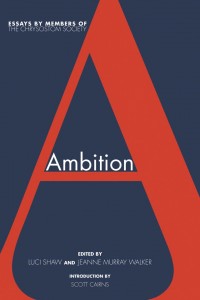 The question prompted a wide range of responses — artful, anecdotal, and insightful — which have been organized and edited by Shaw and Walker, with an introduction by Scott Cairns.
The question prompted a wide range of responses — artful, anecdotal, and insightful — which have been organized and edited by Shaw and Walker, with an introduction by Scott Cairns.
I highly recommend it to you for yourself or for anyone on your Christmas list who might be ambitious, who might struggle with questions of ambition, or who might need a nudge to aim higher and dream bigger. Pick up a copy... or five.
And by the way, I'm giving away a big stack of copies to winners of this contest, which ends tonight (Sunday, December 13).
I find myself comparing and contrasting the contributions in this book, finding that the Society is, as usual, quite a motley crew of perspectives. In print as in person, their opinions sometimes clash and sometimes complement one another — a blessing for readers, in that it gets us thinking for ourselves.
I began reading their collaborative collections when I was in high school. Specifically, Reality and the Vision, a gift from my father, and a book that introduced me to many of my favorite authors. I've learned much from their subsequent works as individuals and as a collective. A Syllable of Water will be required reading in any creative writing course I teach.
So it is with great pleasure that I get to introduce you to writers who continue to inspire me. Some of them — Glancy, Trafton, and Walker — have contributed to the book. Others — Matthew Dickerson, Paula Huston, Paul Willis, and Sara Zarr — are members of the Society who have participated in conversations surrounding the development of the book, and who have plenty of insights from their own experiences to offer.
•
Ambition is dedicated to four members of the Society who have passed on: Doris Betts, Madeleine L’Engle, Keith Miller, and Robert Siegel. Is there anything we might learn about ambition from them?
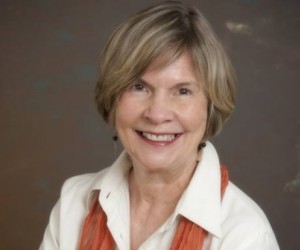
Walker:
Bob Siegel was the least self-advertising guy on the planet. Tall, professorial, occasionally bumbling, at other times wickedly funny, he did a PhD in British Romantic Poetry and taught English most of his life at The University of Wisconsin.
He and I got to know one another when we were in our early twenties, when he offered to comment on my early poetry and then promptly taught me how to send it to journals. Bob Siegel, Jack Leax, and I wrote one another iambic letter poems about “The Seven Deadlies” over the decade or so just before Bob died.
Bob had an astonishing talent for separating his own ego from his work, for which he was deeply ambitious. He published many books, often appeared in Poetry magazine and was honored by prizes. Before he died he saw through the presses two books of his most recent poetry. He made all of it look easy.
To whom would you recommend this book? Is it primarily for writers?
Walker:
The essays in Ambition are surprisingly varied and addressed to anyone who wants to think about our current culture of instant fame, selfies, and advertising. The essays in the book take on a constellation of deeply human issues: self-promotion, humility, obsession, gratitude, role-playing, the history of gendered power in our culture, guilt, and ego management.
Dickerson:
As a writer, I can say that the book certainly speaks to me in ways both challenging and encouraging. Most of the contributions, since they come from writers, do connect ambition to writing. But it also deals with parenting, pastoring, culture, the Bible. I think it is both broadly applicable and so well written that really anybody should be able to benefit from and enjoy this book.
Trafton:
This book is for anyone who feels the powerful lure of ambition. It is not for people who think — or say — that their ambition is to be a good boy or a good girl, unless they are willing to think their way beyond that deluding fantasy.
Most Society members have been writers for many years. How has your sense of ambition changed from the days before your first publication to now? Do you feel more or less ambitious?
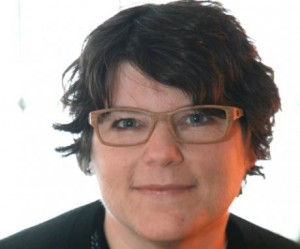
Zarr:
I feel less ambitious as far as the external markers of success go — publishing contracts; how frequently I can get a book out; what sorts of conferences and events I'm invited to; how many sales, likes, favorites, and ratings I can get.
When I started out, I was very driven by feelings of competitiveness and having something to prove. Discovering how fleeting and fickle those things are, my ambition has shifted to the "what exactly am I doing here?" side of things. I try to channel it into having the guts to try new things, to risk failure, to risk being unsuccessful. My ambition is to slow down in hopes of greater excellence and compassion in my work — both in the results and in the process.
Dickerson:
I’m not sure if my ambitions have changed, but my expectations certainly have. My ambition is still to write beautifully, to tell compelling stories, to explore important ideas, and to have my books reach a broad audience. But I also want to write from a place of obedience and faith. I am now more aware that I was 25 years ago when my first novel was published that God can use my books is in very significant ways in the lives of individual readers even if the books never achieve anything resembling critical or popular acclaim.
Tell us about one of your success stories — an ambition you've fulfilled.
Huston:
I used to fantasize about being represented by a famous New York literary agent who would sell my first novel to a major New York publisher. Then it actually happened. And in many ways, the experience lined up with my fantasy. I got to fly to New York. I got to ride in golden elevator to the upper floors of International Creative Management. I got to have lunch in a classy restaurant and hang out in the offices of Random House. And when my book came out, my editor sent me a dozen red roses and a gigantic box of Godiva chocolates. It was easy to mistake all this for evidence that I'd arrived.
Not so. Three years later, the same editor refused to publish my second novel, despite it's being written under contract. And I was back to square one — a crushing experience that prompted me to look at myself and my writing with a more realistic and more discerning eye.
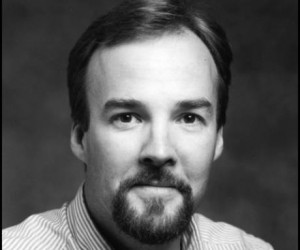
Dickerson:
Getting my first novel published was very exciting. It was exciting to get the offer letter from the publisher. It was exciting to see the cover design. It felt wonderful to finally hold the physical book in my hand.
But all of those feelings faded fairly quickly, and it was fifteen years before my next book was published. Fifteen years with lots of doubts and insecurities and crushed ambitions. I certainly have learned (or, at least, am in the process of learning) not to evaluate my worth by moments of worldly “success” — by whether certain ambitions have or have not been achieved.
If you could write to your younger, pre-publication self about your ambitions, what would you want to communicate to that version of you?
Zarr:
That popularity and success are not the same things. I guess popularity is a kind of success, but I've had it to some degree and it's both unsatisfying and addictive. You can get addicted to approval and attention in a way that diminishes you, and infects the day-to-day work with an anxiety of losing that. It's something that's more like craving for a drug than a fulfilling (if challenging) interaction with the work you have in front of you.
I'd advise myself to come up with a definition of success that is about showing up for the work rather than for whatever my ego thinks it needs.
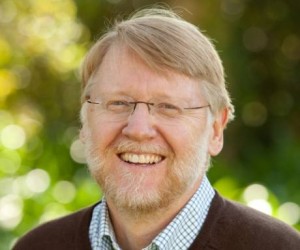
Willis:
I would tell my pre-publication self that publication is overrated — that it is the tinsel on the tree of the writing process.
But the grass is always greener in the other genres. I have published zillions of poems and a good many essays, but have always wanted to have a YA novel in print. Gary Schmidt, a very successful YA novelist, was telling me a few months ago that even though he has often tried, he has never been able to write a poem, let alone publish one. Why is it that envy for the gifts of others so often replaces gratitude for the gifts we have already been given? Shakespeare's Sonnet 29 is popular for a reason.
I remain interested in stories of writers who "failed" in one genre and succeeded in another. Joyce, Faulkner, and C. S. Lewis all set out to be poets. All were much more gifted in prose, of course, but prose of a particularly poetic kind. The best parts of Lewis's essays are his sparkling analogies. Or take Robert Browning, the failed Victorian playwright who succeeded as a poet by perfecting (drum roll) the dramatic monologue. All those plays that nobody wanted to watch were eventually grist for a new kind of poem. In the divine economy of our lives, I'd like to believe that nothing is lost.
Dickerson:
Don’t get overly excited about good reviews. Don’t get overly discouraged about bad reviews. Don't expect to know the impact of your books; you might never know how significant one book might be to one reader. But do keep writing. (That last piece of advice I probably wouldn’t need to give myself, since it’s what I did anyway.)

Huston:
I'd inform myself that success, if measured in book sales, name recognition, and money earned, is ephemeral and actually pretty meaningless. Public taste is fickle, the industry is often in crisis, and what's popular today is forgotten tomorrow. So, I'd say to my younger self, don't set out to gather the most readers; set out to write the best and truest thing you can and you will find the right readers, those who will stick with you over the long haul. Those who eagerly await what you will publish next. For a writer, there is nothing more affirming than loyal, intelligent readers like that.
This is a time of megachurches, celebrity pastors, big-budget “Christian movies,” and controversial fusions of religion and politics. If you could draw our attention to one aspect of the Scriptures that could speak words of wisdom about ambition into this present cultural cacophony, what would that be?
Walker:
For me, work has been a gift and doing excellent work is a profound pleasure. As a person whose work is writing, one of my jobs is to connect with readers. Social media and advertising are a means to do that. But they are only a means. I try to stay centered on what ultimately matters. Acts 17:28 tells us that “in Him we live and move and have our being.”
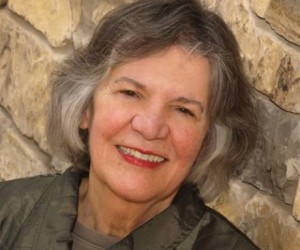
Glancy:
I Peter 1:15-16: "He who has called you is holy, so be ye holy in all manner of life because it is written, Be ye holy as I am holy." Leviticus 11:44 is the first mention of that scripture. It also appears in Leviticus 19:2.
That to me is the height of ambition. Not only spiritual ambition, which is higher than plain ambition, but ambition to be like the Holy One himself. How can I achieve that while stuck with this body, this human will, and this fallen world in which I live? It seems impossible, especially since I have to live with myself and know my repeated failings and shortcomings. Nonetheless, it is an ambition given in scripture.
I have ambition to hold that ambition above all other ambitions in this ambitious world full of so many voices that would pull me away from that ambition that for me stands before all others.
Huston:
It's really difficult to be focused on the self and its next big success when that self is busy praying — praying, in fact, without ceasing. So I'd recommend practicing lectio divina on 1 Thessalonians 5:16-18: "Be joyful always; pray continually; give thanks in all circumstances, for this is God's will for you in Christ Jesus."
What does it mean to "pray continually?" The Orthodox recommend the Jesus Prayer: "Jesus Christ, Son of God, have mercy on me, a sinner." Catholics with a monastic bent repeat, "O God, come to my assistance; O Lord, make haste to help me." The medieval monk Brother Lawrence taught the "practice of the presence of God," which is to say, reminding ourselves every few moments that God is indeed with us and that it is the enormous distraction of rampant ambition that gets in the way of our remembering this basic fact of the Christian life.
Dickerson:
God, by his grace, managed to accomplish amazing things through our obedience, and through our gifts, but despite our bungling.
Tell me about one of the chapters in this book that spoke to you.
Dickerson:
I was moved by Jeanne Murray Walker’s reflections on parenting. They affirmed decisions I made to make raising my children well a higher ambition than being a famous or great or successful writer. To the extent that the nearly fifteen years that passed between my first book and my second book was the result of my investing time in being a parent, I have no regrets.
Tell us about a specific ambition you’d still like to achieve.
Zarr:
Well, I'm always writing my Oscar speech. I'm assuming that would be for screenwriting and not for, say, actress in a leading role?
Dickerson:
Seeing the book I am currently writing come into print. I think that has always been the ambition for every book I have worked on. When I finish one book and start the next, then seeing that next book in print becomes my new ambition.
I also have an ambition of catching trout in every one of the fifty states in which trout can be found in a river or stream.
Do you have a particular role model when it comes to ambition?
Glancy:
I think my role model is my father who did his work and received little recognition for his steadfastness in my life.
Zarr:
I really admire the filmmaker Paul Thomas Anderson. He doesn't seem to ever play it safe or see anything as too big to try to wrestle with. The scope of movies like Magnolia or There Will Be Blood are the very definition of ambition — he wants to do work on a grand scale and do it as well as he possibly can. He seems dauntless, and I love that.
Dickerson:
J.R.R.Tolkien had an ambition to write a myth for all of England. When he acknowledged that ambition, he laughed at himself for his presumption. That was before The Lord of the Rings was published and became… in a sense… a myth for all of England.
What are you most pleased about with this finished book?

Trafton:
I am pleased that every chapter in the book is well written and intellectually engaging, ambitious to say something important. It irks me tremendously, of course, that not everyone agrees with me, but I will put that down too as a feature of the book that pleases me.
Glancy:
I think I am most pleased that it is finally published, and that I am in it among a company of writers I like and admire.
Has membership in The Chrysostom Society inspired, tempered, or otherwise influenced your own sense of ambition?
Walker:
We often exchange manuscripts by email and comment on one another’s work. At our yearly meetings we talk about writing strategies, our current projects, and things that drive us crazy. We write books together and support one another’s publications. But the meetings are full of mischief, too, and high-jinx. They’re always a reminder to lighten up.
Dickerson:
Membership in Chrysostom has perhaps increased my ambition to write well, and lovingly, and carefully. It has probably also made my ambition less tied to the commercial success of my writing.
Glancy:
The Chrysostom Society has been integral to my Christian life. For many years I was in a secular institution. Academia is not often welcoming to believers. I could have counted other believers on one hand (though there may have been others). I looked forward to our annual Chrysostom meetings. There was something about our weekends together that was fundamental to knowing who I was and what I wanted to write. I had to publish in the field in which I taught, but I began writing about my faith. My ambition to continue with religious writing was substantiated during those readings.
I think one of the important parts of our meetings is reading our work-in-progress before others. I still can see the members standing before the group to share their work.
What further reading on the subject of ambition would you recommend?
Trafton:
For complementary reading, I recommend: 1) Genesis (all the way to the death and embalming of Joseph); 2) Milton’s Paradise Lost; 3) Shakespeare’s Troilus and Cressida; 4) Machiavelli’s The Prince; and 5) the Gospel of John.
Willis:
I did recall this morning that I once wrote a poem called "Ambition." It was published in a now-defunct journal called Inklings.
Ambition
One oar, then another, stirs
the water. Ripples gather
at the prow, a wake appears.
You watch them as if they
measure destiny. This takes
a life. Finally you learn to drift.
The horizon is enough to see
on every side. A boat
will carry you where you are.
Popeye still pops
Whenever the question comes up "What's your favorite comic-book movie?" I usually answer "The Incredibles." Then I remember that it was a movie before it was a comic book, so I quickly change my answer to "The Dark Knight."
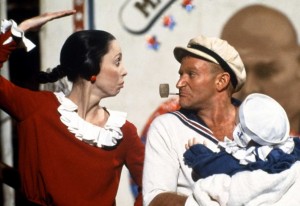 But if I take my time and think more carefully, I might come up with a different title — a movie so unusual that it's hard to remember it's a comic-book movie.
But if I take my time and think more carefully, I might come up with a different title — a movie so unusual that it's hard to remember it's a comic-book movie.
35 years ago today, Robert Altman's Popeye opened up a can of whup-ass spinach and made a mark on the history of comic book movies. Nothing like it had been made before, and I think it's fair to say nothing like it has occurred ever since.
Thinking about it now, I find myself missing Robin Williams. It's so awful, how his time among us ended. And it's also a shame that his talents were so rarely put to work worthy of his imagination. Popeye is one of the high points — as is Awakenings (a film that opened 25 years ago today).
https://www.youtube.com/watch?v=npUqfsI_L34
I saw the film a few years ago for the first time, and here's what I wrote in my film journal over at Letterboxd:
A long-time resident of my "Films That I Can't Believe I Haven't Seen" list, Popeye now belongs on my "Films That I Cannot Believe Exist" list.
Three factors contributed to me missing this film when it first arrived: First: I was only ten. And second: Moviegoing was frowned upon in my community. (Even so, I remember that it was not very well received; the adults I knew commented that it was "too racy" and contained bad language.)
But the main factor was this: My fondness for the cartoon character had quickly faded a few years earlier, when I was only 5 of 6 years old, on one catastrophic day. I had asked my mother to buy a can of spinach (I can still see it there, in the dented cans discount bin) so I could have some "Popeye food" and get strong. She obliged on one condition — that I promise to eat it. I'm sure she smirked, anticipating what was about to happen. Sure enough, I was traumatized when I had to eat a plate of steaming, slimy greens. (What had I expected? I don't know. I was too focused on the promised results!)
My experience of the film is quite the opposite: I've heard less-than-positive things about it. And it never looked like the kind of material that would work as a live-action adaptation. But surprise — it's so good that I want to go back for seconds!
The film is a parade of one unlikelihood after another: That Robert Altman would direct a Popeye movie; that it would be a musical; that such perfect casting as Robin Williams and Shelley Duvall would take place; that such a magical baby as Wesley Ivan Hurt would play Swee'pea; that Harry Nilsson would give it such a gem of a song as "He Needs Me" (re-used brilliantly in Punch-drunk Love); that it would have such elaborate sets; that it would be the first big-screen appearances of Linda Hunt and Bill Irwin; and that it would still somehow look and feel like a Robert Altman picture.
Seriously, how does this movie exist?
Whatever the case, I'm glad it does. While only a few sequences make the movie better than a bizarre experiment, and some (the ranting of the Commodore, the drawn out showdown climax) go on far too long, I'm immediately fond of the film's sweetness of spirit, its elaborate physical comedy, its chaotic choreography, and its audacious imagination.
In a way, it reminds me of another film that features an unhinged Robin Williams: Terry Gilliam's The Adventures of Baron Munchausen. That film, like this one, has all kinds of things wrong with it, and comes very near a total collapse every few minutes, but it has so many flashes of genius, and such a big beating heart, that I revisit frequently. And I'm already looking forward to my next trip through Popeye.
"You've been cloistered away up in that castle too long."
Happy 25th birthday, Edward Scissorhands!
Tim Burton has made more accomplished, more artistically sophisticated films. But if I had to sketch the anatomy of Burton's work, Edward Scissorhands would be its big beating heart.
https://www.youtube.com/watch?v=pu523TrIMpg
What could be more timely than to watch Edward Scissorhands with the family? It's the story of someone from Somewhere Else who wanders, wounded and needy, into surburban America. But he looks dangerous. And, in fact, if he's ill-treated, he just might become dangerous. But thank God for a generous, big-hearted, middle-class suburban American woman who finds room for him and shows him love.
https://www.youtube.com/watch?v=szLCkEBB6xs
Ah, but then there are those fearful, narrow-minded, hostile, self-interested neighbors who interpret anything different as dangerous, without realizing that their very hostility is what makes danger likely to become a reality. Nevertheless, believing they know all they need to know, they rush him toward... what? A public stoning? A crucifixion? A deportation? A "carpet-bombing"? Insert your timely and relevant Other-hating violence here.
https://www.youtube.com/watch?v=64IwbhFYuUM
Christ-allegory interpretations are inescapable with Edward Scissorhands, but in spite of his relative innocence and kindness, Edward also represents anything that makes each one of us feel, at one time or another, that we don't belong, that we're incomplete, that we're falling short of what we were meant to be.
https://www.youtube.com/watch?v=G1DG6f_6nZ8
Forget all about Johnny Depp's ham-it-up performances and try to remember when he was just a charming and promising young actor. His Edward was something we had never seen before. Dianne Wiest gives my favorite performance of her career here (and yes, I'm including Bullets Over Broadway); she's the movie's strongest asset. Nevertheless, Alan Arkin creates my favorite character in the film; I never see a string of Christmas lights without thinking of him and his staple gun on the roof.
Here, Burton's imagination seemed to flow straight from his heart, not just from his mad-scientist mind. For all of the monsters he's unleashed, his take on American ignorance and paranoia may still be the scariest thing he's ever brought to life on the screen.
https://www.youtube.com/watch?v=d9PlKlirxT4
(Having said that, I do have to wonder: Doesn't the scourge of the Twilight series seem like an unwanted consequence of Edward Scissorhands?)
Is it okay for artists to be ambitious?
There was a time when women were frowned on for their ambitions... if those ambitions were for anything other than becoming a wife and a mother. Thank God, we are leaving those days behind. I am grateful for those who dedicate themselves to marriage and to motherhood — two of the most challenging roles that a human being can inhabit. I am also grateful to those women who continue to speak meaningfully into my life from myriad vocations beyond those two: as writers, artists, teachers, scientists, and more.
 But ambition is not a simple thing for anyone, of either gender, in any era. And it seems particularly complicated to bring faith and ambition together.
But ambition is not a simple thing for anyone, of either gender, in any era. And it seems particularly complicated to bring faith and ambition together.
How should we be ambitious in this age of self-promotion?
Listen to the wisdom of someone who has given this a lot of thought over a career of ambition, achievement, and discernment.
Listen to Jeanne Murray Walker — an accomplished poet, playwright, memoirist, and teacher. (Jeanne Murray Walker is one of Anne's poetry mentors. We have the highest respect for her.) On a new podcast, you can listen to Walker go deep into discussion about ambition with another ambitious woman: one of my favorite novelists — Sara Zarr.
Listen to this episode of This Creative Life.
And then — it's not too late — find out how you can win one of several copies of Ambition that I am giving away this month. Jeanne Murray Walker co-edited the book with another of my favorite poets and authors: Luci Shaw. Both of them contributed chapters, as did a variety of writers in The Chrysostom Society, including Eugene Peterson and Bret Lott.
Listen: Star Wars Cantina Surprises!
In the cantina of Hale's Ales Brewery & Pub, the following rebels against forces of scum and villainy assembled:
- the director of Seattle Pacific's University Scholars program — Dr. Jeffrey Keuss;
- a seminarian who is also Star Wars super-fan — Carlo Nakar;
- a pastor who happens to be the author of Christian Wisdom of the Jedi Masters — Dick Staub;
- and a movie critic (yeah, I was the only one available, apparently)
We joined forces to test one another's knowledge of the Star Wars saga in front of a live audience that may or may not have looked like this...
Shocking revelations surprised even the panelists!
- What is the connection between the Ewoks and Filipino culture?
- What makes the droids unique in the Star Wars universe?
- And how did J. J. Abrams quietly and inconspicuously make the deciding move in the battle between Star Wars fans and Trekkies?
The audience posed tough Star Wars-related questions. We did our best to answer them.
And John Williams's music kept spirits high, while food and drink flowed more generously than they would in Lando Calrissian's Cloud City banquet room. (Frankly, I don't remember any food and drink flowing there. Darth Vader spoiled that party in a big way.)
You can now listen to the podcast of a brand new Star Wars Christmas Special. Don't worry, nobody wears red robes and makes declarations about "Life Day." You'll find this much more interesting.
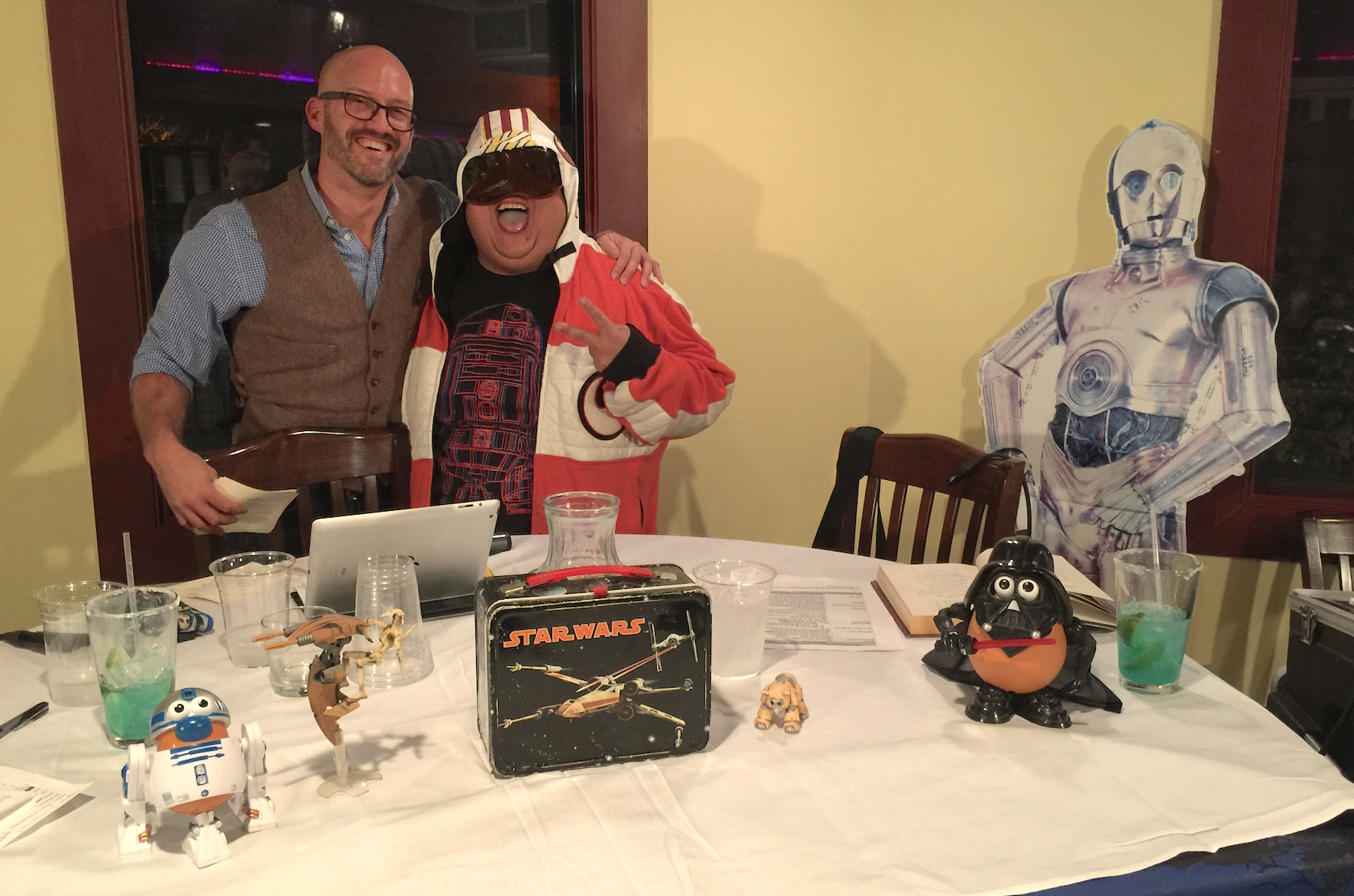
Kill Bill's role model for a Christian woman
Lauren Wilford at Christ and Pop Culture:
A fictional bride helped me be a better woman, but it wasn’t Princess Buttercup. It was The Bride (Uma Thurman), the furious hero of Quentin Tarantino’s two-part revenge epic Kill Bill.
Skeptical? I think Lauren would understand that. But you've got to read this. It'll all become clear to you.
I've been a fan of Lauren's writing for several years — she wrote a guest review of Spike Jonze's Her for this site that I'm grateful she contributed, and her meditation at Filmwell on Ruby Sparks and the Manic Pixie Dream Girl phenomenon was fantastic.
But this piece about Kill Bill and what it means to be a woman... it's right up there with the best pieces she's written. Don't miss it.
